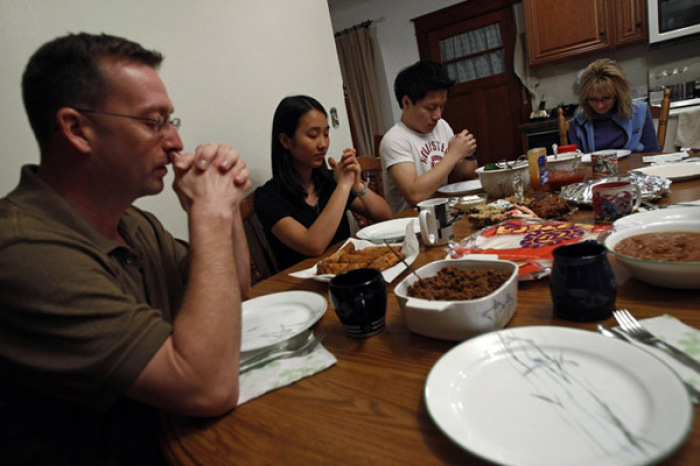What Do Americans Pray for Most? Barna Answers

No matter how politics or culture changes, a majority of Americans say they've prayed at least one time in the last three months, according to a study released this week by the Barna group.
In results that were published Tuesday, Barna researchers surveyed 1,015 American adults ages 18 and older during the first week of June, 888 of whom identified as Christians and past Christians. Respondents were asked to answer: "What does the content of your prayers most often pertain to?"
The data shows that 62 percent of respondents who pray regularly do so "with varying motivations, the most common being to offer 'gratitude and thanksgiving.'" Eighty-two percent of respondents say they most often pray silently and when they are by themselves.
Expressing gratitude in prayer is highest among Baby Boomers at 71 percent and is lowest among millennials at 53 percent.
The "needs of their family and community" are a prayer topic for Americans, with 61 percent identifying it as a motivator, and 49 percent pray out of a need for "personal guidance in crisis." Prayers for personal guidance in crises are "most common among those with lower levels of education" the study shows, with 49 percent with a high school diploma or less praying in such a way, compared to 39 percent of college graduates.
"Just less than half of praying adults (47 percent) most often direct prayers toward their own health and wellness. Facing more frequent health challenges than their younger counterparts, elders are significantly more likely to pray this type of prayer (68 percent compared to 38 percent of millennials)," the researchers found.
Nearly 90 percent of praying American adults direct their prayers to "God" although they don't all pray to the same deity. Addressing "God" was the most common response among almost every segment surveyed.
"As the options get more specific, the numbers drop," the Barna report explains. For example, just half of praying adults pray to "Jesus," but fewer than a quarter pray to the "Holy Spirit."
Those with an annual income of $50,000 or less pray for their health more than those earning $100,000 or more, who "likely have greater financial resources for both medical coverage and a healthy lifestyle."
"Health-related prayers also occur more often among residents of small towns and rural areas than city dwellers, perhaps because of more access to health services, like hospitals, gyms, and pharmacies."
Only 24 percent of Americans report praying most often about their concerns regarding the "nation or government." Elders, the generation above Boomers, are much more likely to pray for this than millennials, the results show.
"Prayer is by far the most common spiritual practice among Americans," said the Barna Group's Editor-in-Chief Roxanne Stone.
No matter how politics or culture shifts, Americans seem to keep praying, with the data remaining constant.
"The vast majority of Americans — no matter their religious affiliation or non-affiliation — participate in some kind of prayer activity. Barna has found this to be true consistently over the last several decades. The numbers have barely changed from year to year," she said.
Stone added that it is good news that people have "active and personal" prayer lives and are "engaging with God outside their houses of worship and around the most intimate and vulnerable areas of their lives."
"But what would it look like to begin to broaden the scope of those prayer lives? To consider the power of corporate prayer — when more than one are gathered in God's name?" she asked.





























